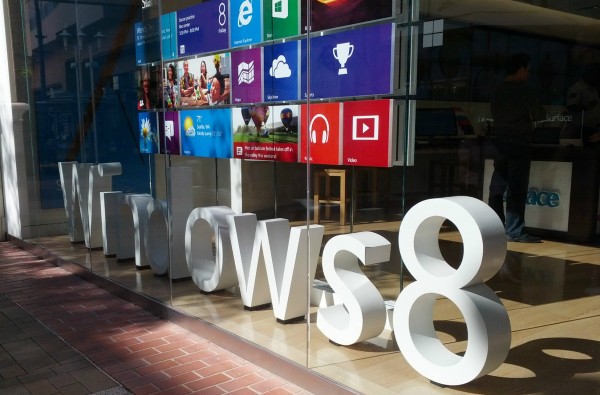
Late this morning, Robert Johnson sent me a link to Paul Thurrott story "Windows 8 Sales Well Below Projections, Plenty of Blame to Go Around" -- "Uncertainty could turn Windows 8 into the next Vista". The lead sentence is frightening: "Sales of Windows 8 PCs are well below Microsoft’s internal projections and have been described inside the company as disappointing". Uh-oh.
Robert asked my opinion, and I'll give it. Relax. Slow start isn't surprising at all. I've said for more than a year that Windows 8 wouldn't be big. It's a transitional operating system coming when most businesses just upgraded to Windows 7 or are in process of doing so and when tablets capture consumer interests more.
Perhaps Microsoft managers drank their own Kool-Aid and simply expected too much too soon. Look at the economy. Target and Walmart posted disappointing results this week, sending stocks downward. Retail is weak right now, which surely affects consumer PC buying. Besides, something is missing: Compelling designs at affordable prices.
I'm surprised at how lackluster are Windows 8 computers and how over-priced they are. Reality is this: Companies like Dell and HP drove down prices long ago. Consumers expect to pay bottom dollar, but, suddenly, everyone wants to be Apple this release cycle. Windows 8 slates selling for one-thousand bucks compete with Android tablets or iPads selling for less than $500. New Windows PC designs I've seen ask too much but give too little. ASUS and Microsoft stand nearly alone offering reasonably feature- and price-competitive models.
Then there is Microsoft's Dr. Jekyll and Mr. Hyde user interface. Among several of Thurrott's on-the-money statements: "It’s a floor wax. No, it’s a dessert topping. Microsoft’s new whatever-the-F-it-is operating system is a confusing, Frankenstein’s monster mix of old and new that hides a great desktop upgrade under a crazy Metro front-end".
The two-motif approach doesn't work, particularly on Surface. If users can't install legacy apps on the desktop, why have it at all? Windows RT should be an all Modern UI affair, with Windows 8 Pro presenting the desktop by default on any computer without touchscreen.
Thurrott is right about Windows RT: "Imagine Apple announcing a major new version of iOS and then releasing a new tablet that runs Mac OS X instead of that new iOS version. Doesn’t make a lick of sense, does it? Well, that’s what Microsoft did".
Windows 8's greatest risk is Microsoft. I rightly faulted the company for killing off the Windows Vista "Wow" marketing campaign and making other strategic changes soon after launch. Like Windows 8, the executive responsible for managing Vista's development and launch left the company. In the wake of Jim Allchin's departure and concerns about slow early sales, Microsoft wrongly shifted marketing strategies, which as much anything else doomed Vista. History repeats. Steven Sinofsky is out, and if Thurrott is right Microsoft sees slower-than-expected sales. The temptation will be to shift strategies, particularly marketing. Change now would repeat past mistakes. Stay the course, Microsoft.
Windows XP sales started slowly, too. Microsoft released during a recession and six weeks after the Twin Towers fell. Consumers' mood was grim. Yet despite early hurdles, XP proved to be the most endearing release ever. Just because Windows 8 stumble starts doesn't mean it's already finished.
Photo Credit: Joe Wilcox

